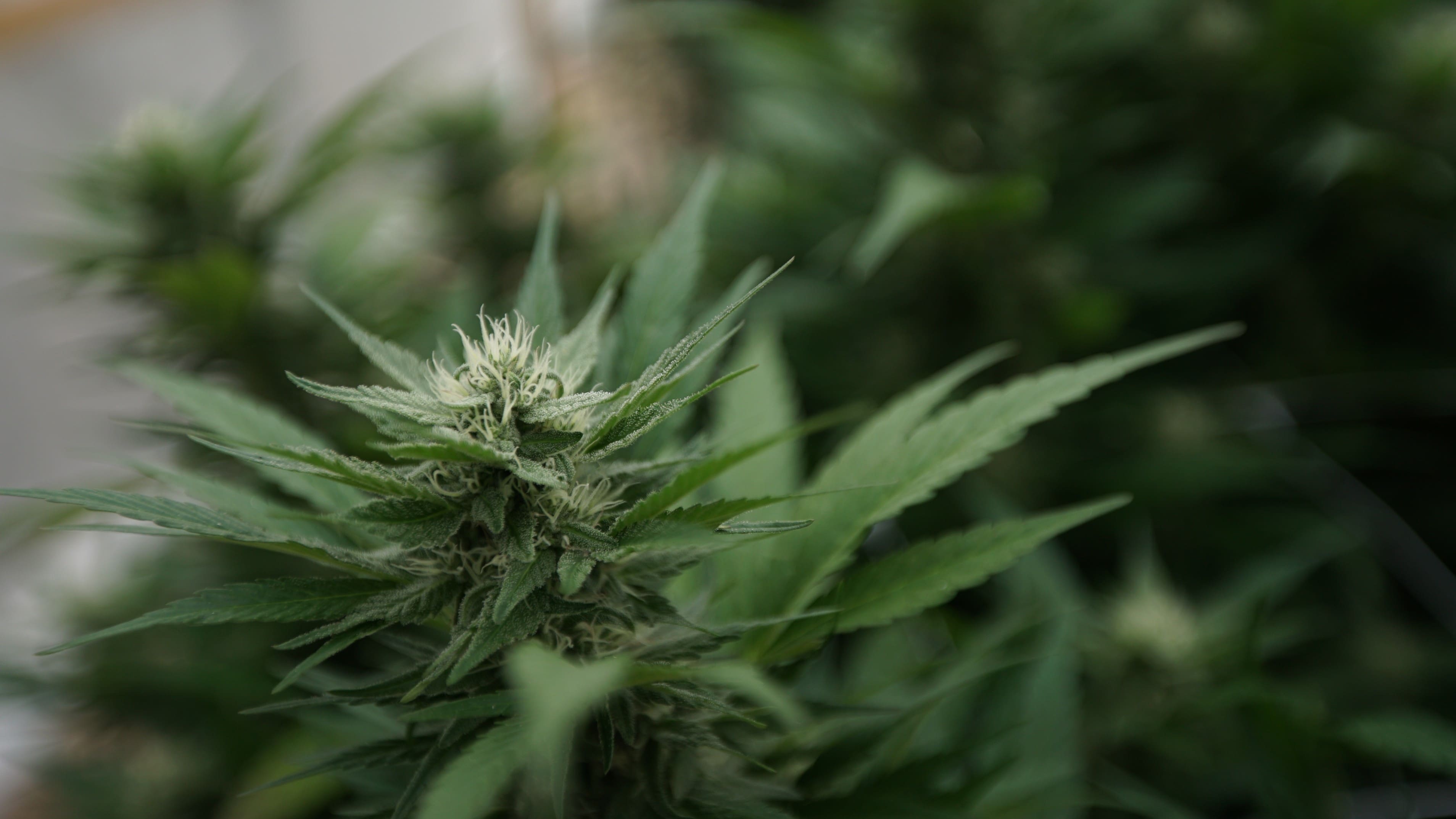Politics
New Jersey Marijuana ‘Seed Equity’ Grants Program Launches Application Portal For $8 Million In Aid To Entrepreneurs

New Jersey has opened applications for the second phase of a marijuana social equity funding program, which will make $150,000 grants to awardees and offer eight weeks of technical assistance.
The New Jersey Economic Development Authority (NJEDA) says the round of so-called Seed Equity grants will allocate “up to $8 million in funding for 48 entrepreneurs” who meet social equity qualifications and hold conditional marijuana licenses. Applicants must also employ 50 or fewer employees.
Money can be used to cover early-state startup expenses and operating costs
The online application portal for the new funding round officially opened on Thursday. “Applications will be accepted on a rolling basis until funding is exhausted,” NJEDA said.
Applications for Phase II of our Cannabis Equity Grant program are now open! This grant will support NJ's social equity applicants and create a stronger, more inclusive cannabis industry. https://t.co/2sF2prtclY
— New Jersey EDA (@NewJerseyEDA) November 30, 2023
The grant round comes on the heels of October’s announcement by NJEDA of $12 million in so-called Joint Venture grants to 48 licensed cannabis operators to help them start and expand their businesses.
“Under Governor Murphy’s leadership, New Jersey is on the forefront of creating a stronger and fairer cannabis market, especially for communities historically harmed by the unjust War on Drugs,” said NJEDA CEO Tim Sullivan said in a statement. “The Seed Equity Grant, which is specifically designed for social equity applicants, will help create an equitable, inclusive marketplace that will create jobs and strengthen communities, all while ensuring our entrepreneurs are able to reap the industry’s economic benefits and have access to the resources needed to succeed.”
October’s $12 million award amount was twice what was originally planned for that round. Initially NJEDA was going to select only 24 companies to receive the money, but a further allocation of funds by Gov. Phil Murphy (D) allowed double that number of awardees, the agency said.
“It is important that we build on our efforts to support the businesses seeking to enter and grow within this emerging market,” Murphy said in a statement at the time. “The Cannabis Equity Grant Program allows us to simultaneously expand the pool of cannabis businesses in our state while also focusing on those communities most impacted by the unethical War on Drugs.”
In the the Phase 1 grant round, 40 percent of funds were earmarked for qualifying social equity applicants, and another 5 percent were allocated for businesses in specially designated Impact Zones. Seed Equity grants, by contrast, will go entirely to social equity applicants.
In addition to the monetary award, technical assistance “will provide licensure process training, assistance in building a cannabis business team, financial management, guidance on securing investors, and development of supply chain management to name a few,” according to NJEDA.
Two informational webinars have been held over the past month, recordings of which are available online.
Dianna Houenou, chair of the state Cannabis Regulatory Commission (CRC), has said the grant program “has helped to set the New Jersey cannabis market as an example for the rest of the country.”
“We were grateful NJEDA stepped up to partner with us and we were able to offer our insight into the cannabis industry and to present our vision for an equitable New Jersey market—with particular concern for those who lack access to personal or familial capital, or to traditional sources of business funding,” Houenou said. “We look forward to even more targeted investment into social equity businesses and those owned by local minority-, women- and disabled veteran-owned businesses. And we look forward to supporting the NJEDA as they make that happen.”
In June, CRC moved to accept requests for certain license types—wholesale, distribution and delivery—only from social equity applicants for one year beginning September 27.
Commissioner Charles Barker, who led the action, said at the time that the state hadn’t done enough since legal sales began April 2022 to help entrepreneurs who have been hurt by the drug war.
“Based on our current framework, I don’t believe social equity businesses—those most harmed by the failed war on drugs, that represents the people and communities that we want to see in the game—they’re not seeming to make it through the process to be considered for an award, let alone open up a business,” Barker said.
New Jersey officials also recently announced the availability of $5.5 million in marijuana revenue to support a hospital-based violence intervention grants program.
The original funding for the program came from federal funds, and the state received an additional $10 million infusion through the American Rescue Plan last year. But officials are now using cannabis impact zone funding from the state’s Cannabis Regulatory, Enforcement Assistance, and Marketplace Modernization Fund, which was created to reinvest in communities most impacted by marijuana criminalization.
Last month Murphy and Attorney General Matthew J. Platkin (D) announced that the same cannabis fund would cover a third of a separate $15-million grant program aimed at interrupting and preventing violent crime. The fund, which was established through the state’s marijuana legalization law, consists of monies from taxes on legal sales, industry fees and civil penalties.
In recent comments, Murphy also weighed in on the state’s lack of marijuana home grow provisions. Unlike most legal states, home cultivation of cannabis remains a crime in New Jersey, including for medical patients.
The governor said Monday that he remains “very much open-minded” to the idea of adding a home grow option to the state’s marijuana law—but he still wants to give the licensed industry more time to mature before implementing that change.
New Jersey is among a majority of states with legal cannabis that route at least some portion of revenue toward community reinvestment.
California last month announced it was opening applications for $48 million in marijuana tax-funded community reinvestment grants, which support job placement, legal assistance, treatment of mental health and substance use disorders, referrals to medical care and other services for communities that have been disproportionately affected by the drug war. That program, which awards grants of up to $3 million, is funded exclusively through state cannabis revenue.
In June, California regulators at the Department of Cannabis Control (DCC) announced the award of $4.1 million to 18 local governments through a first-of-its-kind program to support cannabis business licensing programs and curb the illicit market.
DCC also recently awarded nearly $20 million in research grants, funded by marijuana tax revenue, to 16 academic institutions to carry out studies into cannabis—including novel cannabinoids like delta-8 THC and the genetics of the state’s numerous “legacy” strains. And in February, state officials announced the award of $15 million in grants to support local efforts to promote equity in the marijuana industry.
Both California and Michigan recently announced new grant rounds in November that are aimed at social equity. California’s program will allocate $15 million in funds to local jurisdictions with equity programs, while Michigan’s will put $1 million toward equity applicants’ employee education, business needs and/or community reinvestment.
Meanwhile, Illinois paid out $45 million in grants last year under its Restore, Reinvest, and Renew (R3) program, which was established under the state’s adult-use cannabis legalization law. Funds went to 148 programs run by organizations operating on relatively small budgets in communities designated as socioeconomically disadvantaged.
Arizona sets aside 10 percent of marijuana tax revenue for a justice redevelopment fund, which funds public health services, counseling, job training and other social services for communities that have been adversely affected by marijuana arrests and criminalization. Applications for the state’s first round of grants under that program became available in March.
Photo courtesy of Chris Wallis // Side Pocket Images.
















